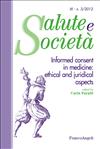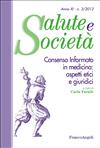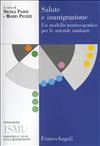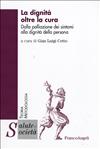
I nuovi scenari del traffico d'organi
Il traffico d’organi è un fenomeno dilagante, con un giro d’affari di un miliardo e mezzo di dollari. Alla rete criminale che sfrutta le sacche di povertà sparse nel mondo si stanno affiancando oggi nuove realtà problematiche: l’Iran ha autorizzato la vendita di Stato dei reni; l’America si sta aprendo al mercato; la Cina persevera nell’impiego degli organi dei condannati a morte. Su tutt’altra linea l’Europa, e in particolare l’Italia, che nel 2016 ha inserito nel codice penale il reato di traffico d’organi, nel tentativo di arginare un fenomeno mostruoso.
cod. 1420.205








